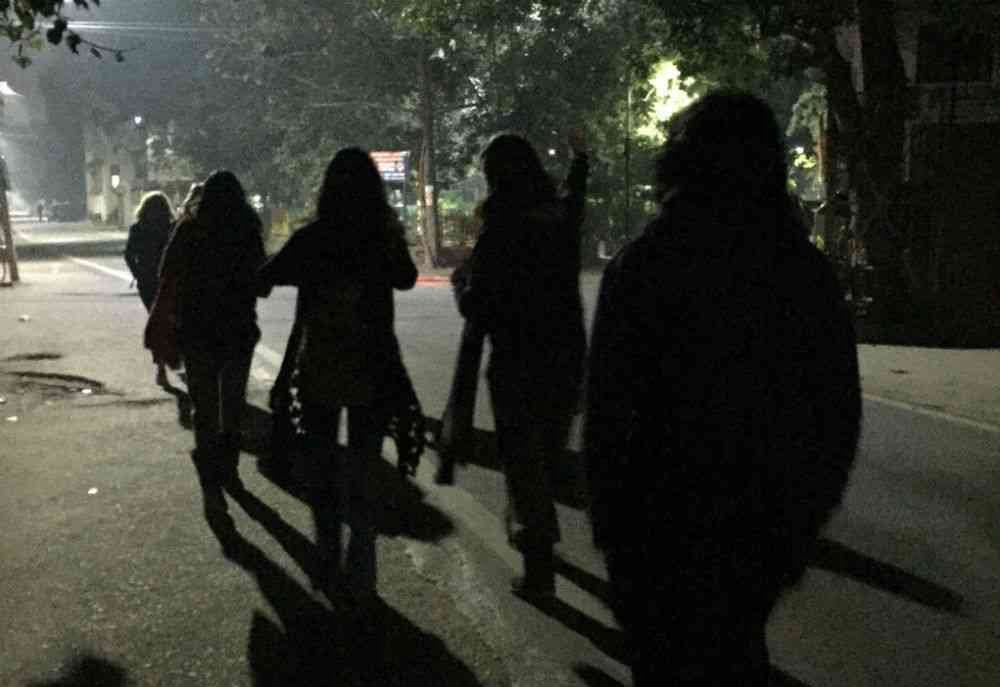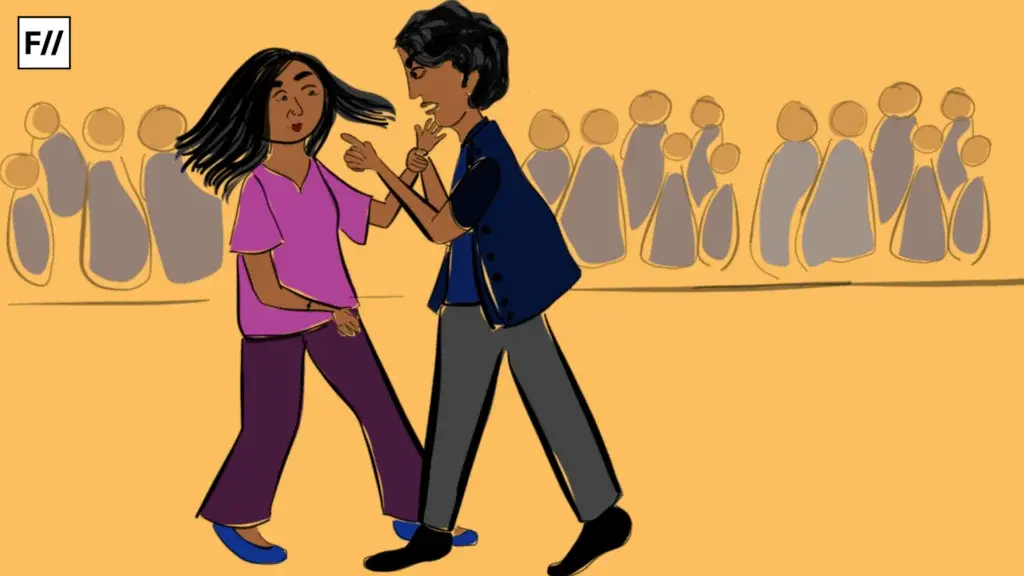Trigger Warning: Abuse
Especially from the positionality of women who have historically faced one or the other kind of discrimination, our dynamics with the space which contains us has direct implications on our mental health. An agreeable space is one in which we enjoy unlimited individual freedom without undue duress or discomfiture. A space which obliterates itself, such that, the inhabitant flows freely in their creative realm, unmindful of the immediate. A space which sustains one’s mental growth and well-being. Realistically, the same space which is supposed to be a safe haven for the formative years of a child can have a vastly different connotation for a victim of sexual abuse.
Under the joint-family structure in the Indian setting, where personal space often overlaps with or is diminished due to familial space, young boys and girls are left more vulnerable to sexual abuse. In a recent study, 53% of Indian children reported different forms of abuse.
Under the joint-family structure in the Indian setting, where personal space often overlaps with or is diminished due to familial space, young boys and girls are left more vulnerable to sexual abuse. In a recent study, 53% of Indian children reported different forms of abuse. The statistics are different in different states but the problem remains the same. Most of the times the perpetrator is a close relative: a cousin, an uncle, a family friend. Children who grow up in spaces with their abusers are constantly and hyper aware of their surroundings. They dread being alone, lest their molester finds another chance to corner them, assault them and rob them of what they have, oftentimes, at an age when they aren’t even old enough to comprehend the crime. This curbs their freedom of personal space, forcing them to develop a ‘conscious vision’ and reclusive behavior as a surveillance mechanism to protect themselves and trigger a flight response in case of danger.

They carry this ‘conscious vision’ with themselves wherever they go. Walking too close to the road on the sidewalk can invite assault from an unsuspecting man on a bike. Every man on every bike is assumed to be a potential assaulter. They peer at the faces of each passer-by, shielding and asserting their freedom of space as they walk on. Standing too close to a man in a crowded public space makes them uncomfortable, lest they are touched ‘accidentally’. Forever under a night curfew, women do not enjoy the privilege of walking alone, carefree, at night in dimly-lit spaces. Even when living alone in a room of her own, far away from home, she feels as if she is being watched: observed by invisible cameras ambushing on her personal space, dissecting her. Or in a professional setting, subjected to voyeuristic gaze and undue negative attention. Thus, a woman’s dynamics with space is always fraught: be it in our public, private or the professional realm. Even the digital space is not harassment-free and we are only too aware of it.
The harassment directly affects the inscapes of one’s mind, causing a dissociation within one’s visible, psychological and subconscious faculties. The past constantly encroaches on the present and the future. The immediate is reduced to a workstation of past traumas, infested with unprocessed pain, unrealised ambitions and unhealthy routines. The victim lives in a state of fear wondering if there is any known rhyme or reason to what makes the perpetrator choose their victims thus? Do their eyes scan the crowd, scan the expanse of the female body to corrupt with their ravenous claws at random? By chance? By sheer pathetic instinct? By a brash defiance of the norms of morality? A twisted immoral freedom of expression? What enables them? Patriarchy? Entitlement? Hunger? Sin? Ego? Maybe something that Manusmriti could justify?
Guilt, humiliation, shame and trauma brew in the inscape of a woman’s mind. A research article published in 2018 titled Child sexual abuse in India: A systematic review says that there is evidence to show that child sexual abuse (CSA) can affect the neurobiological systems e.g. thinning of the cortical representation of the genital somatosensory field in the brain. Trauma from CSA can also cause delays in developmental milestones leading to defects in motor, emotional, language, behavioral, cognitive, social and psychosocial skills in children. This is passed onto adulthood. Thus, the effects dig deeper. Not only surrounding the victim but further curbing their freedom of space and personal choice.
It becomes increasingly difficult for victims of sexual abuse and assault to reassert their right to space: personal, public and professional. Sure, India is a free country (or partly free) and spaces are ungendered, egalitarian and free, on paper at least.
It becomes increasingly difficult for victims of sexual abuse and assault to reassert their right to space: personal, public and professional. Sure, India is a free country (or partly free) and spaces are ungendered, egalitarian and free, on paper at least. Spaces are for all to live and breathe in. So why must women fret and suffocate? Instead of the rare sightings of women Uber drivers, for instance, can we have formal structures affirmatively ensure more women bus conductors, drivers and police personnel are employed, so as to increase their participation in society and in the process, make public spaces feel more reassuring and safer for women? Have we wondered loudly enough about the systemic reasons behind why many women are still wary to be in the public space?
The question still remains: How do we help women reclaim the spaces that has been stolen from them? Some of it can be achieved by equal participation of women in societal roles employing the tenants of feminism. By creating a culturally-tailored intervention focusing on abuse and trauma for all ages. By creating inclusive spaces for all genders. But more essentially, by raising children with sensitivity. By teaching young boys the meaning of consent and compulsorily re-educating the youth and the general population through audio and visible media. And simply, just letting women be limitless and free, respecting their boundaries and backing off.
Somya Charan Pahadi has a M.A. in English from University of Delhi. She is an aspiring academic and spends her time reading anti-war literature, literary and cultural theory and flaneuring across the city. You can find her on Instagram, Twitter and Facebook.




